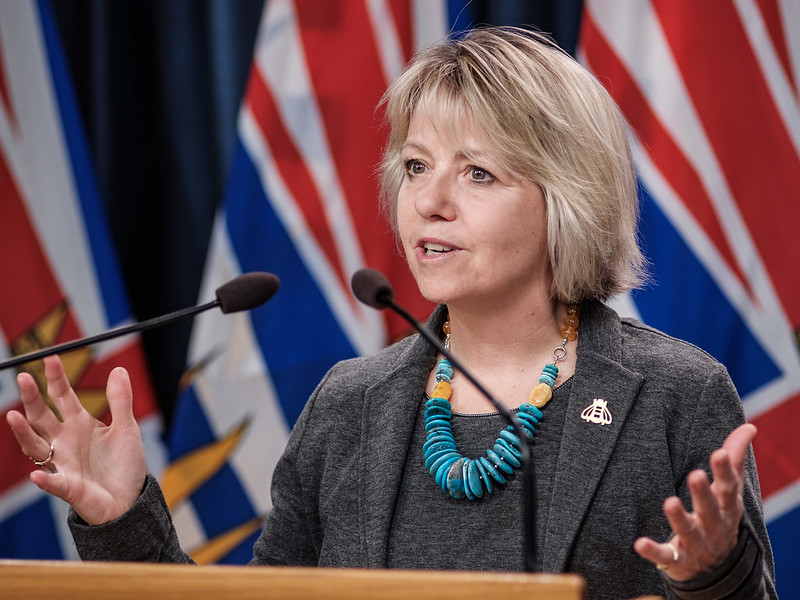Dr. Bonnie Henry, Provincial Health Officer, said COVID-19 vaccines made by Pfizer Pharmaceuticals will be available in the province as soon as next week, however, the first shipment will only go to two locations.
The first two trays of the Pfizer COVID-19 vaccine will go to the Vancouver Coastal Health Region and Fraser Health, with none coming to the Interior Health region until at least January.
“We are receiving very small doses to start with, to make sure that the supply system and the whole mechanism and logistics on how it works can be done and will be done safely,” explained Henry. “as we get our systems underway and we better understand the requirements for the supply chain, we expect to be able to transport more vaccine to more location around the province.”
Each of the locations will receive two trays of vaccine, with one tray containing about 975 doses, adding up to 3,900 doses between the two locations.
Both the Pfizer and Moderna vaccinations will require two doses, spaced at least 21 days apart, with full immunity about a week after the second dose.
Henry said the province is working on expanding to nine sites around B.C. as more vaccines are shipped in, with plans in place to set up 30 vaccination sites.
Given the low number of initial vaccines, the province has been forced to make a decision on who gets to be first in line.
“Our priority is to save lives, and we know the lives that are being taken and affected most are our seniors and elders in long-term care and assisted living. In addition, we need to protect our strained health care system so all of us can get the care we need,” said Henry.
The first batches in December will be provided to health care workers in long-term care, emergency departments, ICUs and COVID wards.
Once those in health care are vaccinated, the priority will shift over to those over 80-years-old, higher-risk communities such as those in congregate living stations and shelters, remote and isolated Indigenous communities.
Henry said she expects more doses to be available by February or March, so more front-line workers can be vaccinated, such as first responders, teachers, manufacturers, other health care workers and grocery store workers.
“This phasing is based on what we’re anticipating to be available based on the approval of vaccines, once more vaccine supplies become available, it will allow us to accelerate these time frames,” said Henry.
With more becoming available through the year, more people will be able to have access to the vaccine, and Henry hopes that everyone who wants the COVID-19 shot can get theirs by September.
The first shipment, however, will be the new Pfizer vaccine, which was approved for use on Wednesday, December 9th.
The Pfizer vaccine must be kept at very low temperatures, between -70 and -80 degrees, and Henry said the refrigeration units needed will be added to all of the sites where residents can get vaccinated.
While the vaccines are about 94% effective, Health Canada has recommended against its use for some people.
“These first vaccines are not recommended and have not been tested in children under the age of 16. Thankfully, we know that children are less likely to have COVID or have serious effects from COVID. They are also not approved for use in people who are pregnant,” said Henry. “Unfortunately they are not yet approved for people with immune-compromising conditions. That is something we are looking at because we know that people whose immune system is not functioning are more at risk of having severe illness from COVID-19.”
Henry added that more kinds of vaccines will be available in the coming months which can be used by a wider population.
While the arrival of vaccines against COVID-19 gives some hope to the end of the pandemic, Henry said people need to remember to stick to the basics when it comes to staying safe for now.




